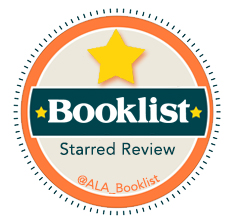Such a Pretty Girl Press Materials
Praise for Such a Pretty Girl

Such a Pretty Girl chosen by the editors of Booklist, the publication of the American Library Association, as one of the best books of 2019

Excerpt from Ch. 24 of Such a Pretty Girl 11/23/19

“Our Lives Are Not Tragedies”: A Conversation on Disability Rights 10/30/19
Peter Handel interviews Nadina LaSpina

Pretty Amazing: Two Disabled Activist Memoirs 09/23/19
Author and Blogger Sonya Huber reviews both Such a Pretty Girl and The Pretty One, a collection of personal essays by Keah Brown.
“Nadina LaSpina’s Such a Pretty Girl: A Story of Struggle, Empowerment, and Disability Pride is a riveting chronicle of a coming-to-political awareness and then a long commitment to disability justice. … This book would be a perfect addition to any disability studies or creative nonfiction course, as it offers a great example of seamlessly melding the personal narrative with social context.

A Tale of Two Pretties by Ben Mattlin 09/23/19
Advocate, journalist and author Ben Mattlin reviews both Such a Pretty Girl and The Pretty One, a collection of personal essays by Keah Brown.
“By the end [of Such a Pretty Girl], you will learn a lot about the movement. But you will also feel as if you’ve made a new friend.”

Excerpt from memoir published in SALON 09/08/19
“FAR FROM HELPLESS: How the Disability Rights Movement saved my life”
Read it anytime!

Lisa Florey, a Deaf blogger and consultant, reviews Such a Pretty Girl 08/12/19
“Everyone needs to read this eye-opening book for a personal account of how far the United States has come in disability rights — and how far we still have to go.”

WBAI -FM Best Feminist Summer Reads 08/01/19
“Such a Pretty Girl is a page-turner that will literally have you laughing and crying–and learning.” Fran Luck, Joy of Resistance

SUCH A PRETTY GIRL IS A NECESSARY, COMPELLING MEMOIR
Review by Grace LaPointe 07/24/19
“This is an empowering and feminist book. It shows an immigrant, writer, teacher, and activist’s perspective on pivotal moments in history. In an intimate way, Such a Pretty Girl shows how far disability rights have come in the past 70 years and touches on inequalities that still exist.”

Book description, excerpt, and author’s bio published in We News 07/21/19

Such a Pretty Girl listed in BEST NEW BOOKS: Week of July 16, 2019

Starred Booklist Review
In this insightful memoir, disability activist LaSpina effortlessly shares how her personal experiences led to her activism, creating a compelling story that is both instructive and moving. After contracting polio as a toddler in Sicily, LaSpina encountered constant pity: such a pretty girl, such a shame, such a waste. Hoping that American doctors could cure her, her family moved to Brooklyn when she was 12. Her teen years consisted of long hospital stays, invasive surgeries, extensive physical therapy, and treatment from medical personnel that ranged from supportive care to impersonal detachment to sexual molestation. The story continues through the turbulent 1960s, LaSpina’s university years, and her increasing involvement in the burgeoning Disability Rights Movement. LaSpina unsparingly relates life-changing incidents that led to her growing self identity and resolution to become a full-time activist. Along the way, readers will encounter her successes and set-backs, both personal and political, and learn about the U.S. medical system and its treatment of individuals with disabilities. Readers will also find plenty of humor, happiness, camaraderie, and love. LaSpina spurns the term inspirational because she finds it patronizing. Despite her protestations, LaSpina’s story of determination and hard-won independence is engaging, informative, and ultimately, inarguably, inspiring.
— Kathleen McBroom
This title has been recommended for young adult readers:
YA/General Interest: Older teens will relate to LaSpina’s evolving sense of self as she transitions from a pitied child into an independent, self-sufficient adult. —Kathleen McBroom


Starred Kirkus Review
From pity to empowerment, a woman who contracted polio as a baby illuminates her personal changes in attitude and accomplishment amid sweeping societal changes in rights for the disabled.
As a child in Sicily, LaSpina struggled with her family to understand the disease. Was it a sign of the family’s sin, and was she the cross they had to bear? Was it her destiny? If so, was she destined to be single and celibate? A nun or an old maid? Her father didn’t think so; he moved the family to America, hoping that better medical care would provide a miracle cure. The author found herself in hospitals with other children who had mobility issues and other diseases. She underwent a series of painful surgeries, intending to be able to walk and leave behind the wheelchair she had learned to love. Ultimately, she did walk, with braces and crutches, but she kept falling, breaking bones and complicating her life. She wanted to please her father, who had focused the family’s life and resources on enabling her to walk. Yet she was also becoming part of an activist movement that stressed acceptance and independence. Once feeling so insular, alone, and helpless, LaSpina, who created and taught courses in disability studies at the New School, began to feel “good to belong, to be part of something. I wasn’t sure what that something was, but I knew I wanted to be part of it.” Her memoir encompasses activism, civil disobedience, and legislation that would help move disability from the realm of disease requiring treatment (and eliciting pity) to respect, acceptance, and equal protection under the law. The author also addresses sexuality and romance, showing how she discovered that her life need not be limited as it once seemed destined to be. “I was the luckiest woman in the world,” insists the author in this revelatory and deeply moving memoir that clearly shows how and why she came to feel that way.
